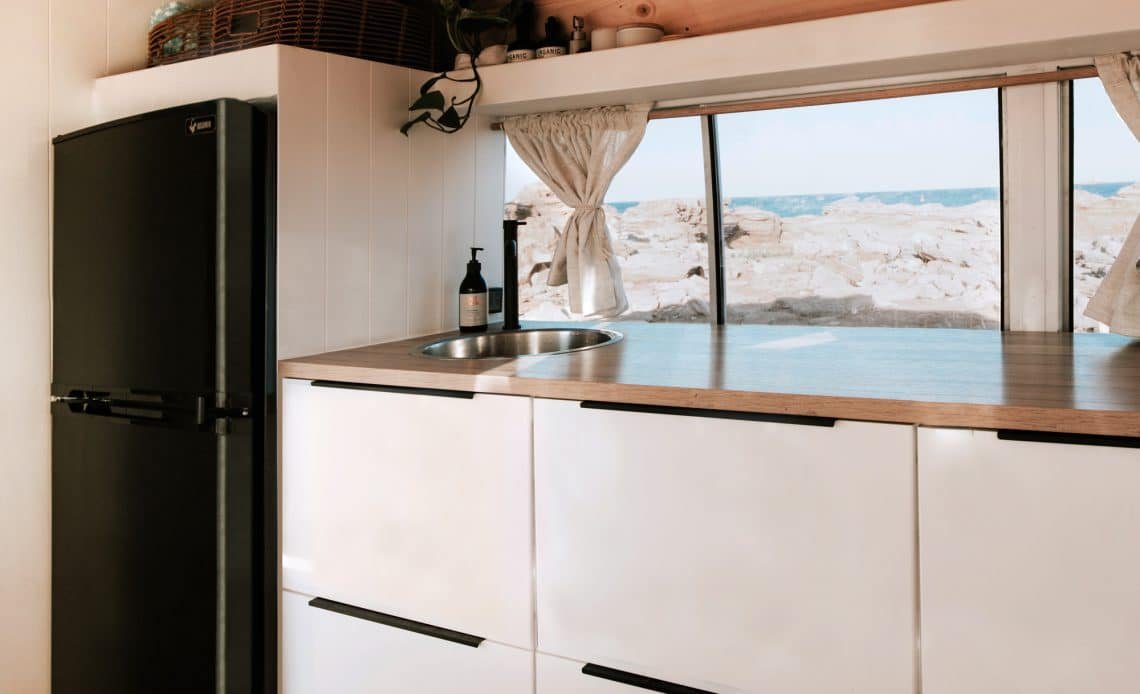When it comes to choosing the right caravan fridge for your needs, there are a variety of options to consider. From absorption fridges to compressor fridges, each type of fridge has its own unique set of pros and cons. In this article, we’ll take a closer look at the different types of caravan fridges for sale and help you make an informed decision.
#1 Absorption Fridges:
Absorption fridges use heat rather than a compressor to generate cold air. They typically run on propane gas or electricity and are commonly used in RVs and caravans.
Pros of Absorption Fridges:
- They are quieter than compressor fridges as they have no moving parts.
- They can operate on propane gas, which can be convenient for those camping off-grid.
- They can be more reliable than compressor fridges, as there are fewer components that can break down.
- They may have a longer lifespan than compressor fridges, as they don’t have a compressor that can wear out over time.
Cons of Absorption Fridges:
- They tend to be less energy-efficient than compressor fridges, especially when running on electricity.
- They can take longer to cool down and may not be as effective in hot weather conditions.
- They may require more maintenance than compressor fridges, particularly if running on propane gas, as the gas system needs to be regularly inspected and serviced.
- They may be more expensive to purchase than compressor fridges.
#2 Compressor Fridges:
Compressor fridges are the most common type of caravan fridge. They work by compressing a refrigerant gas to generate cold air, similar to the way a standard household fridge operates.
Pros of Compressor Fridges:
- They are more energy-efficient than absorption fridges, especially when running on electricity.
- They can cool down quickly and maintain a consistent temperature, making them more effective in hot weather conditions.
- They are typically more reliable than absorption fridges, with fewer components that can break down.
- They require less maintenance than absorption fridges, as there is no gas system to inspect and service.
Cons of Compressor Fridges:
- They can be louder than absorption fridges due to the compressor.
- They may be less effective in extreme cold weather conditions.
- They may be more expensive to purchase than absorption fridges.
- They may draw more power when first turned on, which can be a concern for those using a battery-powered system.
#3 Thermoelectric Fridges:
Thermoelectric fridges use the Peltier effect to generate cold air. This process involves an electric current flowing through two different types of metal, which causes one side of the metal to cool down and the other side to heat up. Thermoelectric fridges are often used in smaller fridges, such as those found in portable coolers.
Pros of Thermoelectric Fridges:
- They are typically more compact and lightweight than a compressor or absorption fridges, making them easier to transport.
- They have no moving parts, making them very quiet.
- They draw very little power, making them an energy-efficient option for those using a battery-powered system.
Cons of Thermoelectric Fridges:
- They are less effective than compressor or absorption fridges in maintaining a consistent temperature, especially in hot weather conditions.
- They are typically only suitable for smaller cooling needs, such as portable coolers.
- They may not be suitable for longer trips or extended periods of use, as they may not be able to maintain a consistent temperature over a longer period of time.
#4 3-Way Fridges:
3-way fridges, also known as absorption fridges, work by heating a refrigerant gas and then cooling it down using a condenser. They can be powered by three different sources: electricity, gas, or 12-volt power.
Pros of 3-way Fridges:
- They can be powered by multiple sources, making them versatile for different camping scenarios.
- They are typically more affordable than compressor fridges.
- They are very quiet, with no compressor or fan noise.
Cons of 3-way Fridges:
- They are less energy-efficient than compressor fridges, especially when running on gas.
- They take longer to cool down and may not maintain a consistent temperature as effectively as compressor fridges, especially in hot weather conditions.
- They require more maintenance and upkeep than compressor fridges, as they have a gas system that needs to be serviced regularly.
- They may not be as reliable as compressor fridges, with more components that can break down or malfunction.
Conclusion
In conclusion, choosing the right type of caravan fridge for your needs requires careful consideration of your power source options, cooling needs, and maintenance requirements. Whether you opt for an absorption fridge, compressor fridge, thermoelectric fridge, or 3-way fridge, there’s a fridge out there to suit your specific needs and budget.







